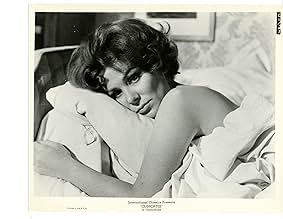Of the many noir movies written by Michel Audiard during the 50s and 60s, and performed by a superlative ensemble cast numbering, at times, Jean Gabin, Lino Ventura, Bernard Blier, Françoise Rosay, André Pousse, Robert Dalban, Maurice Biraud, Jean Lefebvre, and many more, "La Métamorphose des Cloportes" is in many respects the supreme classic -- it's the last instance where gritty realism, with a rare sense of place in post-war Paris, is still balanced against the never-absent humour imparted by Audiard's chiseled scripts. Later, absurdist humour would take over in such "gangster comedies" as "Faut Pas Prendre les Enfants Du Bon Dieu Pour des Canards Sauvages" (1968) or "Ne Nous Fâchons Pas" (1966). Here, though, we still get a feel for a France in the early throes of modernization, in which Balzac's Paris in being torn down to be replaced by Marshall-Plan-funded, Gaullist-inspired tower blocks and freeways. The director is the honest warhorse Pierre Granier-Defferre, but this film is really a writers' movie: adapted from the real-life former convict (turned successful Left Bank literary celebrity) Alphonse Boudard's eponymous novel (Boudard rightly gets a credit), its screenplay is credited to both Michel Audiard and Albert Simonin, yet another famous ex-Paris mobster become a famous crime novelist. (Around the time the movie came out, Simonin also wrote a superb dictionary of 20th-century French mob slang, "Le Petit Simonin Illustré Par L'Exemple.) In other words, these guys know what, and whom, they're talking about -- and how it should all sound. Every line sparkles with made-guy wit, and a definite flavor of Jean Renoir's and Marcel Carné's universes.
Superficially, "La Métamorphose des Cloportes" is a revenge movie. Three little Paris hoods (Charles Aznavour, Maurice Biraud and Georges Géret) get tipped off about a possible burglary, but they need the help of a bigger fish (Lino Ventura) to fund their expedition. When things go south midway through their attempt to blow open a safe, they panic and run, leaving Ventura to be picked up by the cops. In the next five years he spends in jail, he vows to get even. He will, in settings ranging from Irma-la-Douce-like red-light districts to a fairground, a fake Swami retreat, and a posh Latin Quarter contemporary art gallery headed by the magnificent Pierre Brasseur, whom Ventura earlier knew as a decrepit stolen art fence. "The most elaborate swindle dreamt by professionals doesn't hold a candle to this abstract art wheeze," Brasseur pronounces, before sweeping Ventura along to an opening worthy of Tom Wolfe's best efforts.
But we're not meant to really worry about the protagonists' grisly fate. Bouncing superb lines throughout, Granier-Defferre and Audiard whisk us from Champs-Elysées hostesses bars (all gone today) to the East Paris Vincennes racecourse (now only sparsely attended for its unfashionable trotting races) to the gutted working-class wastelands behind Gare de Lyon railway station. None of the filmmakers that came afterwards, even those most aspiring to street-cred à la Mathieu Kassovitz, have been able to embed their movies so truly into the physical reality of France. The Nouvelle Vague crowd could sometimes achieve it (Godard in "Breathless" but not in "Week-End"; Truffaut in "400 Blows" but not in "Vivement Dimanche"). The actors are having a ball, too. Aznavour shows what a career he relinquished for his singing one - he manages to be hilarious and chilling at the same time when he threatens Géret's prostitute girlfriend (Annie Fratellini): "Si tu ne causes pas, je te commence à coups de lattes et je te finis au rasoir." Françoise Rosay, as Gertrude, the Paris mob's freelance "Q" (she rents out guns, crowbars and blowtorches) prefigures the glorious Aunt Léontine of "Faut Pas Prendre les Enfants Du Bon Dieu Pour des Canards Sauvages" ("Un mec qui t'emporte une brique de matériel, qui te laisse deux cents sacs et qui te donne plus jamais de nouvelles, moi, j'appelle ça une mauvaise personne.") Pierre Brasseur, a classical actor who towered over Carné's sprawling "Children of Paradise", switches effortlessly from gangster slang to upperclass sophisticate. "La Métamorphose des Cloportes" is an underrated classic deserving of a revival.



























